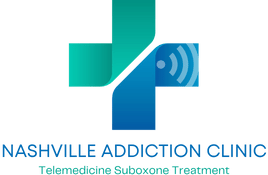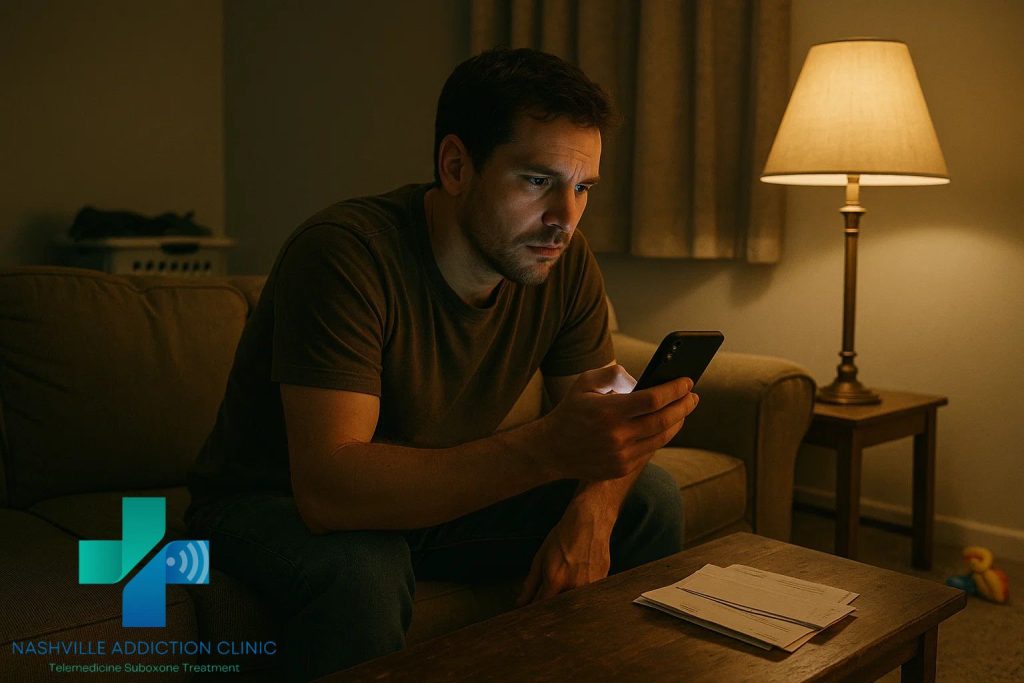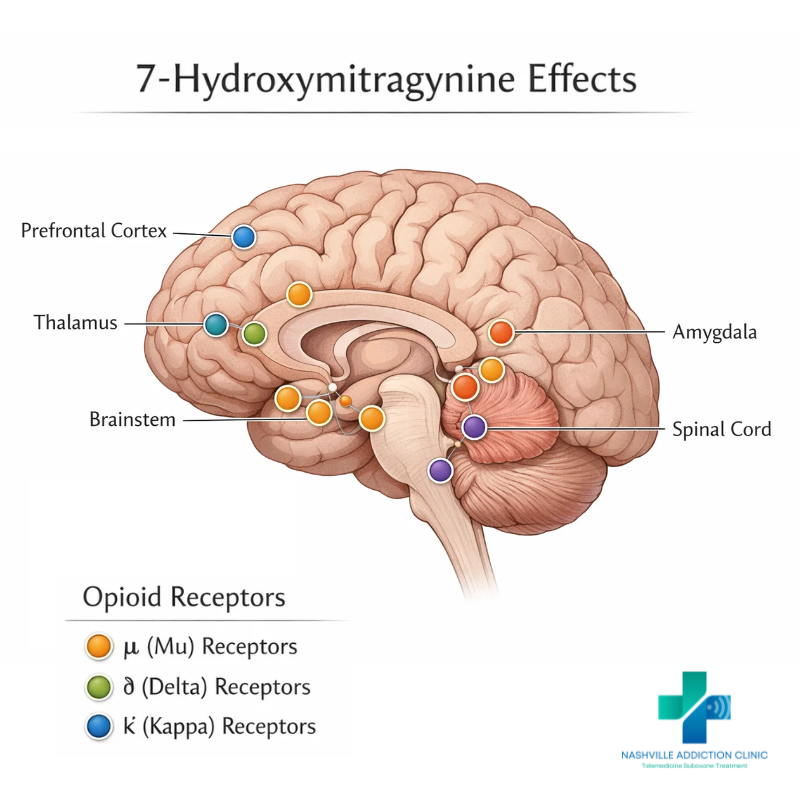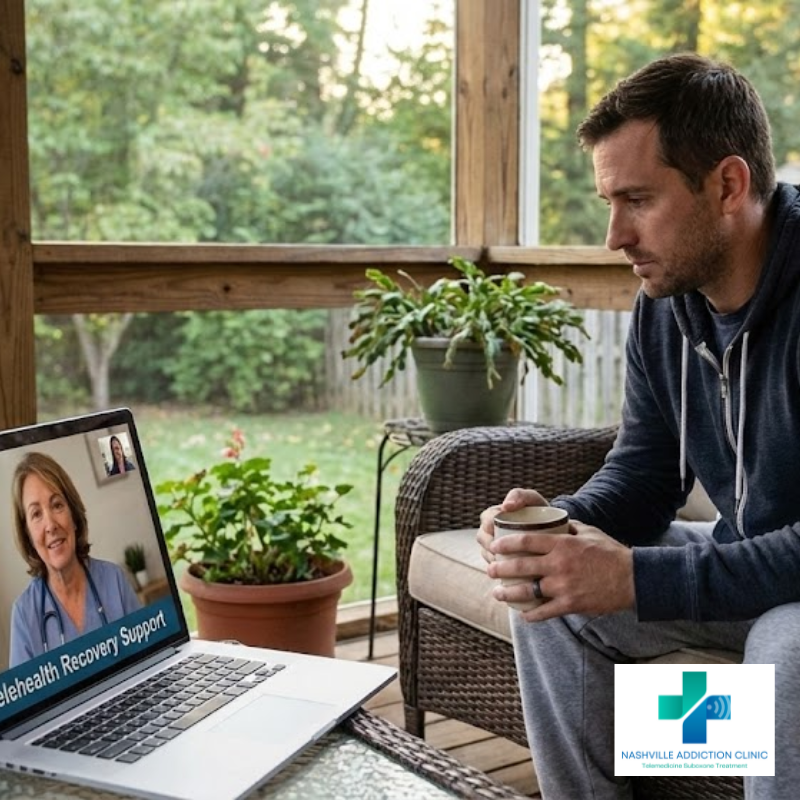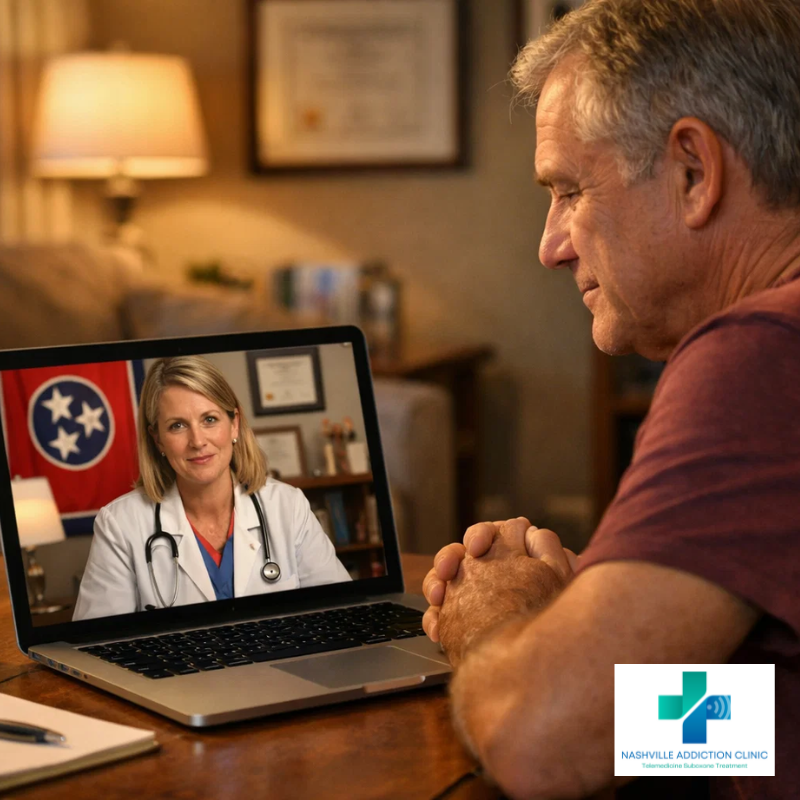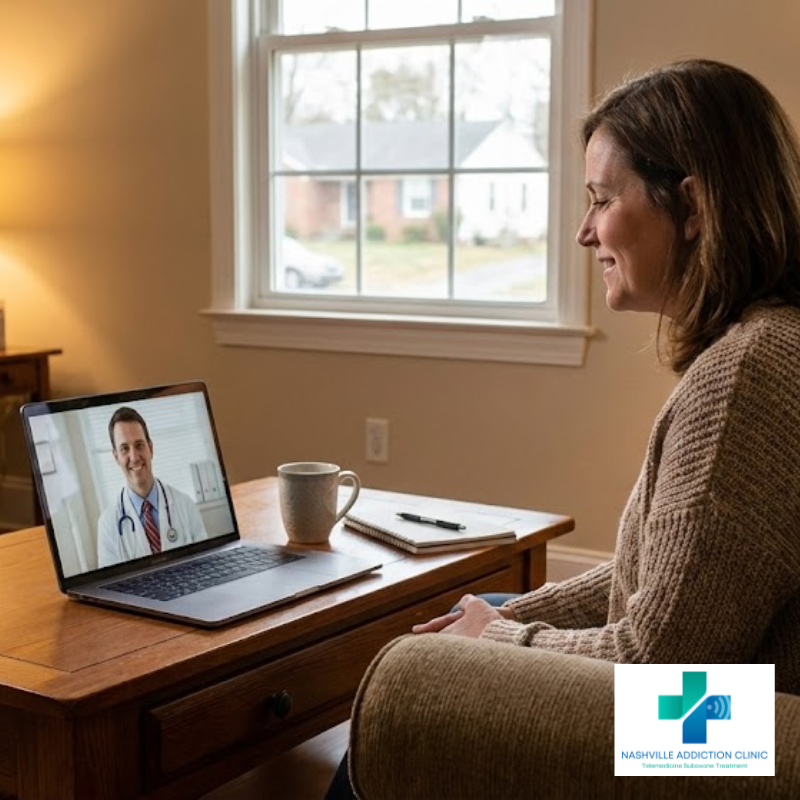Kratom Withdrawal: Safe, Virtual Recovery Options in Tennessee

Understanding Kratom/7-OH Withdrawal and Your Recovery Options
If you’re struggling with kratom withdrawal, you’re not alone. Many people in Tennessee—including Nashville, Murfreesboro, Clarksville, Franklin, and Knoxville—are turning to kratom as an alternative to opioids, only to find themselves physically dependent. Just like opioids, kratom affects the brain’s opioid receptors, making it addictive and difficult to quit without help.
At Nashville Addiction Clinic, we’ve treated more than 1,000 Tennesseans over the past six years, and we understand the seriousness of addiction. Left untreated, opioid and kratom dependence can lead to relapse, overdose, or even death (FDA, SAMHSA). The good news? Recovery is possible, safe, and private—thanks to our TeleMAT® program.
What Is Kratom/7-OH Withdrawal?
Kratom withdrawal happens when your body becomes dependent on the plant’s active compounds and then reacts when you stop taking it. Symptoms can be both physical and emotional, often feeling similar to opioid withdrawal. Kratom is often referred to as a “gas station drug” due to its easy accessibility in many gas stations and mini-marts.
Common Kratom Withdrawal Symptoms
- Muscle aches and body pain
- Insomnia or restless sleep
- Irritability, anxiety, or depression
- Nausea, vomiting, or diarrhea
- Cravings for kratom or opioid
- Chills, sweating, and runny nose
While not always life-threatening, withdrawal can be extremely uncomfortable and may push someone back into using kratom or even stronger opioids like heroin or fentanyl. Learn more about the dangers of Kratom/7-Hydroxy addiction.
Why Kratom Withdrawal Should Be Taken Seriously
The DEA has identified kratom as a substance of concern due to its addictive potential. Many people begin with kratom believing it is safe or natural, only to transition to opioids when withdrawal symptoms become overwhelming. Unfortunately, this path increases the risk of overdose.
If you or someone you love is between the ages of 18 to 65 and struggling with dependence, it’s important to know that help is available—and it doesn’t require going to a clinic in person.
How Nashville Addiction Clinic Can Help
We are the first clinic in Tennessee to receive a virtual medical license to provide addiction treatment through telemedicine. That means you can get treatment for kratom withdrawal and opioid addiction from the comfort of your own home.
Why Choose Us?
- TeleMAT® Program: Medication-Assisted Treatment delivered virtually.
- Suboxone Treatment: Safely eliminates withdrawal and cravings.
- Compassionate Care: Our owners are in recovery themselves.
- Accredited by The Joint Commission for quality and safety.
- Master’s-level Counselors who provide ongoing support.
- Proven Results: Over 100 five-star Google reviews (Read Patient Reviews).
- Accessible Payment Options: Commercial insurance, TennCare Medicaid, and self-pay available.
👉 Register today:
- Commercial Insurance Suboxone Telemedicine Appointments
- TennCare Suboxone Telemedicine Appointments
- Self-Pay Addiction Treatment
- Register as a returning patient
The Benefits of Telemedicine for Kratom Withdrawal
Our patients often tell us that transportation barriers and fear of judgment kept them from seeking help in the past. With our telemedicine program, you:
- Never have to visit a clinic—all care is virtual.
- Connect with kind, supportive staff (Meet Our Team).
- Access care privately from your phone, tablet, or computer.
- Stay on track with counseling and medical check-ins.
We created TeleMAT® because we believe every person deserves respect, privacy, and hope during recovery.
FAQs About Kratom Withdrawal
How long does kratom withdrawal last?
Most symptoms last 5 to 7 days, but cravings and mood issues may continue longer without treatment.
Can Suboxone help with kratom withdrawal?
Yes. Suboxone stabilizes brain chemistry and eliminates cravings, making the transition away from kratom much easier.
Is kratom safer than opioids?
No. While marketed as “natural,” kratom is addictive and can lead to opioid use. Both the FDA and DEA warn against its risks.
Can I get treatment if I don’t have insurance?
Yes. We offer self-pay options and a sliding-scale program.
Do I need to visit a clinic in person?
No. With our TeleMAT® program, you can receive care 100% virtually, including prescriptions and counseling.
Start Your Recovery Today
If you’re tired of struggling with kratom withdrawal or opioids, Nashville Addiction Clinic is here for you. We’ve built a recovery community based on kindness, respect, and proven results.
📱 Call or text us at (615) 927-7802
📲 Message us securely on the Spruce Health mobile app
Whether you’re in Nashville, Knoxville, Memphis, Clarksville, or Chattanooga, recovery is possible—right from your home.
Related Articles
- Suboxone Treatment in Tennessee: A Virtual Path to Recovery
- Telemedicine Addiction Help in Tennessee: Your Path to Recovery
- Suboxone Near Me: Safe, Accessible Treatment for Opioid Addiction in Tennessee
- Start MAT Today: A New Beginning with Nashville Addiction Clinic
External Resources
- FDA: The Dangers of Kratom
- SAMHSA: Substance Use Treatment Locator
- DEA: Kratom Drug Facts
- National Institute on Drug Abuse
- Centers for Disease Control and Prevention | CDC.gov
- National Center on Substance Abuse and Child Welfare
- Locate a Peer Recovery Support Specialist
- Tennessee Department of Health Drug Overdose Dashboard
